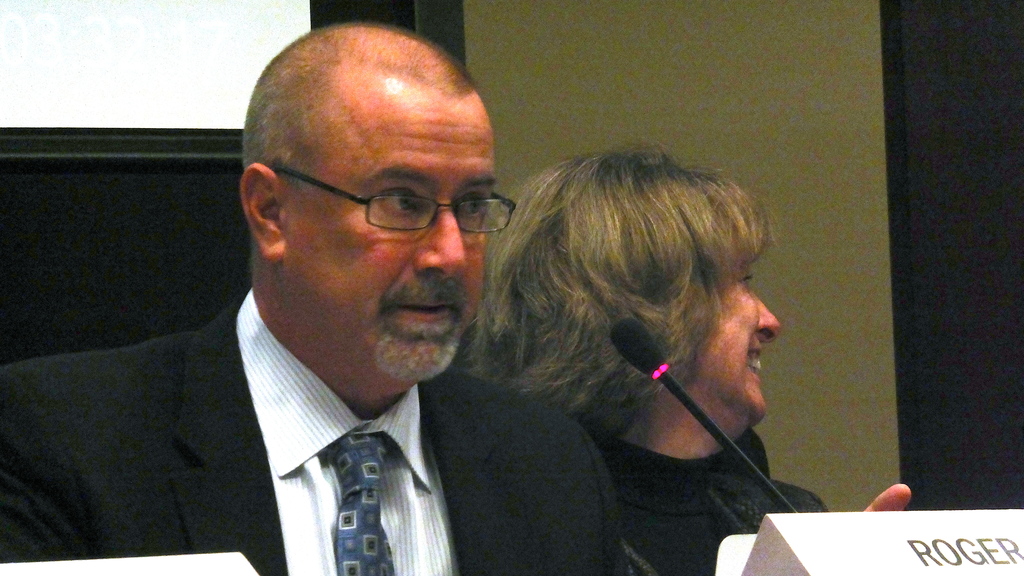After a full day of reviewing other state’s teacher license systems, members of a committee studying licensure in Idaho decided they need more information.

The Tiered Licensure Technical Advisory Committee reviewed plans from North Carolina, Ohio and Maryland on Monday at the Statehouse. Members took a detailed look at how the systems were created, how they work and how teachers advance between tiers of licensure.
But committee members were hard-pressed to find firm data that backed up whether licensure systems lead to improved student achievement.
“Statistically valid and reliable data is what we are looking for, rather than guttural ‘well, we hope it’s working,’” said Chairman Roger Quarles, the State Department of Education’s Deputy Superintendent.
The committee was convened in October, and held its second meeting Monday. The group does not plan to issue any recommendations to the Legislature during the upcoming 2014 session, but may have proposals for the State Board of Education in the spring.
If that’s the case, and if the State Board adopts rules regarding licensure, those rules would go before the Legislature in 2015.
Andy Grover, superintendent of the Melba School District, said he wants to hear from other states and look at hard data going to farther.
“We’re creating a whole system and we don’t know whether it will work or it won’t,” Grover said.
The panel was convened to study and begin implementing a unanimous recommendation from Gov. Butch Otter’s Task Force for Improving Education to create a licensure system. A separate task force recommendation called for transforming teacher pay by creating a career ladder system that would be tied to licensure.
A pilot program consisting of 25 three-member teams is beginning a pilot project to study licensure in Idaho. Additionally, the state received a two-year $236,000 grant from the Chief Counsel of Chief State School Officers to study and implement a system by the fall of 2015.
Rachel McBroom, director of educator preparation for the North Carolina Department of Public Instruction, said a licensure system and mentorship program ensures beginning teachers are prepared for the job from day one.
“I feel much more confident as a parent in the state knowing new teachers are not automatically, as soon as they graduate, given the keys to the kingdom to stay in a classroom as long as they want, whether they are effective or not,” McBroom said.
But specifics about how student achievement changed, how teacher retention was affected or how many teachers left the profession after failing to advance from an initial license were unavailable.
“We do not have the data,” McBroom said.
When Quarles asked Julia Simmerer, the director of the Office of Educator Effectiveness with the Ohio Department of Education, about the relationship between licensure and retaining effective teachers he got a similar answer.
“I don’t know if we have data to show that,” Simmerer said.
Neither of the three states studied Monday directly tied teacher pay to their licensure models as is the case with one of the recommendation on the table in Idaho.
“No incentive to get to the top (tier) if there is not a little bit of money involved in it,” Sen. Roy Lacey, D-Pocatello said. “Money talks.”
Lacey is not a member of the committee but is one of a handful of lawmakers who sat in during one of the first two meetings.
Idaho Education Association President Penni Cyr said demands continue to be made of teachers’ time without the addition of financial support.
“Many teachers have stepped into leadership positions and have time and time again without any type of compensation,” Cyr said “Teachers are doing more and more these days with Common Core implementation and writing new curriculum and it’s harder to take on some of those other leadership type positions.”
Committee member Roger Brown, Gov. Butch Otter’s deputy chief of staff and senior special assistant for education and government services, did not attend the meeting. Other than a reporter for Idaho Education News, only one other person attended the meeting.
Members of the Tiered Licensure Technical Advisory Committee next meet on Dec. 13 and are hoping to review plans from other states that have well established and documented licensure systems.
